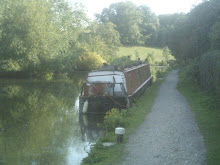A major step forward for the sustainability movement was achieved at the end of last month when the Lammas Project won planning permission for their project.
NEWS RELEASE August 2009First Eco-Village in UK gets planning permission
Lammas, the group behind the innovative eco-village, first applied for planning permission in June 2007. After being refused twice by Pembrokeshire County Council the group appealed to the Welsh Assembly Planning Inspectorate and following a well attended public hearing have finally won permission.
The project consists of nine eco-smallholdings, a community hub building and a seasonal campsite on land near the village of Glandwr in North Pembrokeshire. Lammas founding member Paul Wimbush explains: “We want to build an ecovillage in which people can live lightly on the earth in modern eco-houses. The project is unusual in that on the one hand it takes a green approach to all aspects of living and on the other hand is structured very much like a conventional village.”
“The project has been designed so that the nine smallholdings, while being essentially autonomous, will also fit into an overall permaculture design plan for the whole site. Permaculture is a land-management approach that meets people’s needs through replicating natural ecosystems. It is diverse and human-scale by its very nature as opposed to agriculture which tends towards big machines and monocultures. This way we can turn what is considered as poor land into something incredibly productive.”
The project has met a mixed reaction from local people despite promising a range of benefits including new footpaths, a seasonal shop, fresh local produce and a minibus service.
Cassandra Lishman, a local businesswoman and a prospective resident of the eco-village said today: “At last we can begin building our homes. We are delighted that the Welsh Assembly Government is bold enough to put their policies into practice.”
Because of the strict regulations imposed by the planners, the buildings erected on the site must have a very low visual impact and blend into the landscape and cannot be made out of conventional materials such as concrete blocks and cement. Instead, largely natural materials from the locality must be used, including earth, turf, timber and straw, and the buildings have been designed using a combination of the latest in green technologies combined with traditional building skills. The houses will incorporate many sustainable technologies such as passive solar heating, rainwater harvesting and electricity generation from renewable sources such as wind, water and solar, and the whole site will not be allowed to use any mains services.
Cassandra Lishman and the other prospective residents know that life in the eco-village is going to be hard work. The planners require that 75 per cent of all household needs must be met directly by land-based means. Each smallholding has had to be meticulously planned to meet this requirement with a broad spectrum of enterprises ranging from strawberry production to basketry, from smoked hams to furniture making, from woollen crafts to medicinal tinctures.
However tonight the Lammas residents will be celebrating what could well be considered as a significant planning precedent and a sign of changing times.
Further details about Lammas and the eco-village can be found at www.lammas.org.uk including pictures and links to some short films on the project.


No comments:
Post a Comment